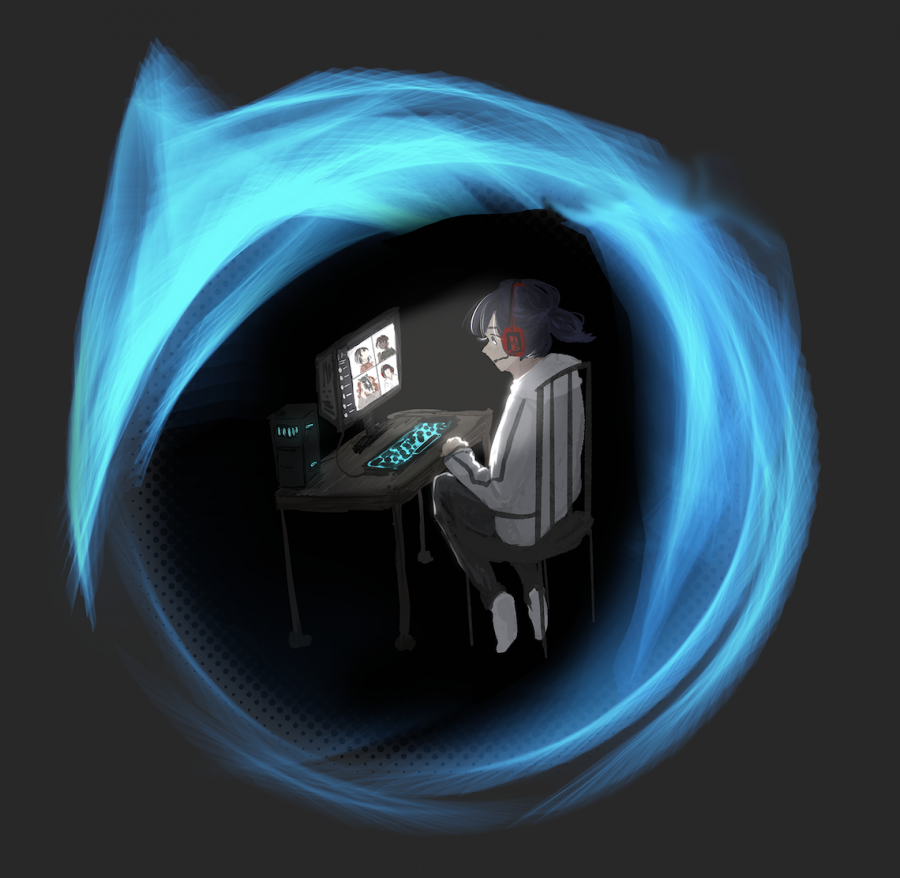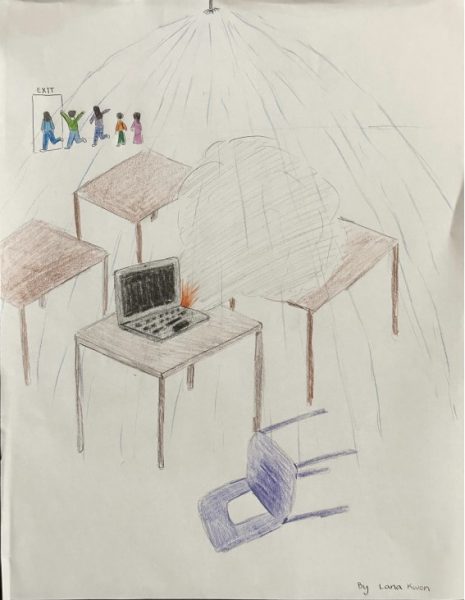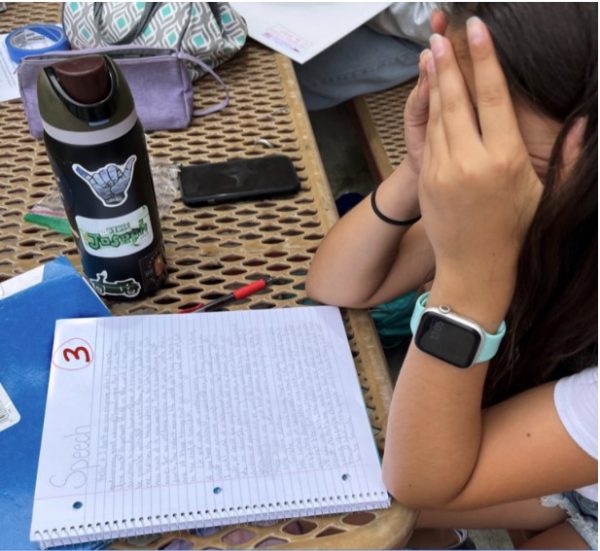Shallow Pandemic Relations
Pandemic isolation is an unfortunate catalyst for desecrating socialization, and social media only fills a minuscule level of happiness in that void
As the pandemic rages on, students are more enveloped in online communication than ever before, but this comes with blazing downsides.
While being in a pandemic only necessitates physical-not social- isolation many of us still feel increasingly alone, despite the huge advances made in technology. But since we are inherently social creatures, we will look for connection wherever we can find it. For some people, this means breaking COVID-19 related restrictions and endangering themselves and everyone around them. For others, this means scrambling to replicate a rich ecosystem of interaction on the much more one-dimensional digital plane. Trying to socialize effectively during the pandemic can be extremely difficult and can lead many to develop parasocial relationships, which, while rewarding in the short-term, are dangerous for our mental health and our social skills. Donald Horton and R. Richard Wohl coined the term “parasocial relationships” in 1956 to refer to the one sided relationships that individuals form with people in media but the issue is so much more prevalent- and so much more concerning- now.
Though technology has not enabled us to seamlessly move our lives from the physical to the digital world, it has made it significantly easier to consume media and this nearly frictionless relationship helps the viewer feel a sense of connection with a content creator. This causes many people to feel connected to people they see on the internet. While this, like, shallow interaction with a real person (texting, social media, etc), does not fulfill our desire for connection, consuming content and developing parasocial relationships is rewarding in a way that real interaction cannot and should not be. For one, no real relationship should be one-sided and expecting the complete control that you have over a video or a book over a person is unrealistic. Second, developing parasocial relationships might resolve an immediate problem but it does not address the larger issue.
Developing parasocial relationships with others often reflects a lack of connection in the real world, which during the pandemic, is much more common than usual but is also much harder to deal with. The key here, then, must be intention. On its own, feeling isolated, lonely, and even confused, would be natural at this time.
It is only when we start ignoring the underlying issues and trying to find easy solutions that developing parasocial relationships becomes a problem.
However, in a pandemic, effective interaction is extremely, extremely hard. For one, even though conversation is exceedingly important for connection, sometimes, what is left unsaid is equally important. According to research done by Chris Frith, a professor at University College of London, a number of different cognitive processes are triggered just by looking at someone’s face. Obviously then, there are a few things we miss by not being able to meet face to face so it’s completely understandable for people to still feel a bit isolated, even nine months in.
While this is obviously not ideal, it is nice to know that it is not all within our head. And since this cannot last forever, we will only be left improvising for a little while longer as long as everyone stays home, wears their mask and tries, even though it is hard, to socialize digitally.
Your donation will support the student journalists of Woodbridge High School. Your contribution will allow us to purchase equipment and cover our annual website hosting costs.
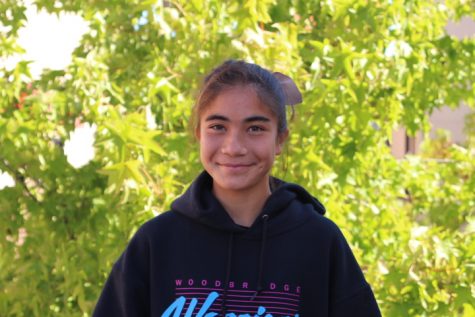
Hey Warriors! My name is Ada Meltzer and I’m this year’s Features A editor. This is my third year on the Golden Arrow and I can’t wait to see what...
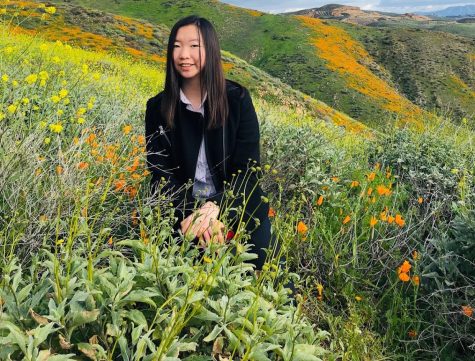
Heya, I'm Andrea, an avid literature and Leigh Bardugo enthusiast. I'm operating as a Photo Editor and illustrator this year for the Golden Arrow Magazine....



